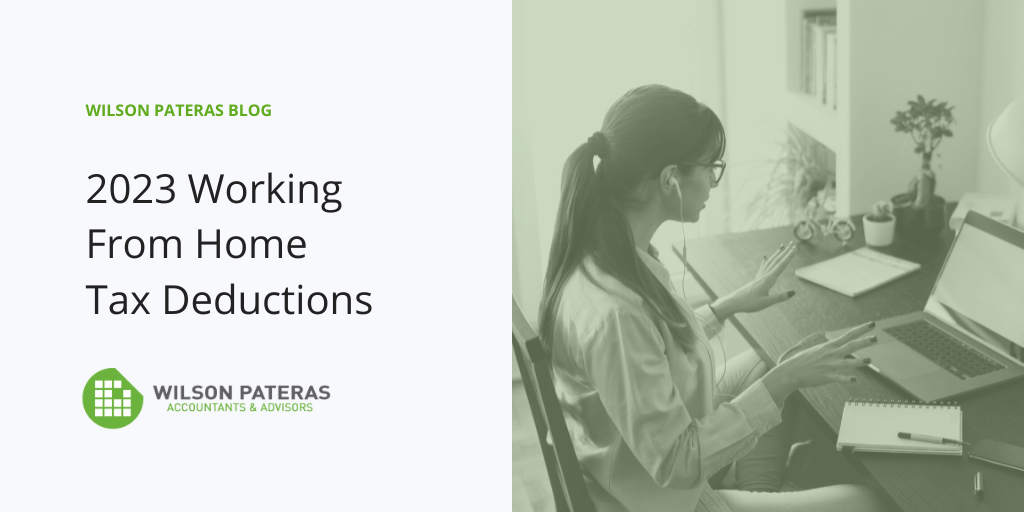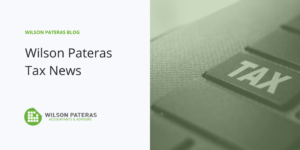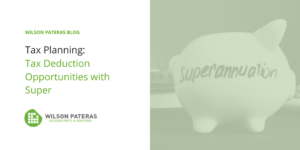
The ATO has released a draft tax guidance (PCG 2022/D4) for claiming tax deductions for working from home.
You should be aware of these changes so that you can keep the appropriate records to maximise your tax claims in your 2023 Tax Return.
What are the key changes
From 1 July 2022, the ATO has explained that taxpayers who are working from home can claim deductions based on their actual expenses, or they can potentially adopt a revised fixed rate method which uses a rate of 67 cents per hour.
To use the revised fixed rate method, you must meet the following basic conditions:
- You must be working from home while carrying out your employment duties or carrying on your business on or after 1 July 2022;
- You must be incurring specific additional running expenses which are deductible under section 8-1 as a result of working from home; and
- You must keep and retain relevant records in respect of the time you spend working from home and for the additional running expenses you are incurring.
The running expenses covered by this method are:
- Energy expenses (electricity and/or gas) for lighting, heating/cooling and electronic items used while working from home;
- Internet expenses;
- Mobile and/or home telephone expenses; and
- Stationery and computer consumables.
While no separate deduction can be claimed for the expenses listed above if using the revised fixed rate method, you can potentially still claim depreciation deductions for assets used while working from home (e.g. computer, desk, chair, etc) along with any other running expenses not listed above, provided the normal tax deductibility requirements are satisfied.
A key change is that you do not need to have a separate home office or dedicated work area set aside in your home in order to rely on the fixed rate method.
Also, if more than one individual is working from home at the same time, each individual will be able to apply the fixed rate method if they each meet the requirements listed above.
This new practical compliance guideline from the ATO has been issued in DRAFT form and the final guidance may change. We will keep you informed of any changes, but we recommend you start to keep the records the ATO has listed in their guideline.
The Records You Need to Keep
You need to keep the following records to prove your working from home tax deductions for the 2023 financial year:
- A record which is representative of the total number of hours you worked from home during the period from 1 July 2022 to 31 December 2022; and
- A record of the total number of actual hours you worked from home for the period 1 January 2023 to 30 June 2023.
For the 2024 and later financial years, the ATO expects you to keep a record for the entire income year of the number of hours they worked from home during that income year. An estimate for the entire income year or an estimate based on the number of hours worked from home during a particular period will not be accepted.
What you should do now
To use the revised fixed rate method and claim 67 cents per hour for working from home expenses in your upcoming 2023 Tax Return, you will need to start to keep a record of your actual hours working from home.
A record of your hours for the income year can be in the form of:
- timesheets
- rosters
- a diary or similar document kept contemporaneously.
You must also keep evidence for each of the additional running expenses that you incurred. The documents you need to keep in order to demonstrate that you have incurred additional running expenses must show what the expense is and that you incurred the expense.
For energy, mobile and/or home telephone and internet expenses, you must keep one monthly or quarterly bill. If the bill is not in your name, you will also have to keep additional evidence showing you incurred the expenses; for example, a joint credit card statement showing payment or a lease agreement showing you share the property, and therefore the expenses, with others.
For stationery and computer consumables, which are occasional expenses, you must keep one receipt for each item purchased.
Please contact us and speak with your accountant if you need any assistance with this so we can help you to maximise your tax deductions in your 2023 and future year Tax Returns.





